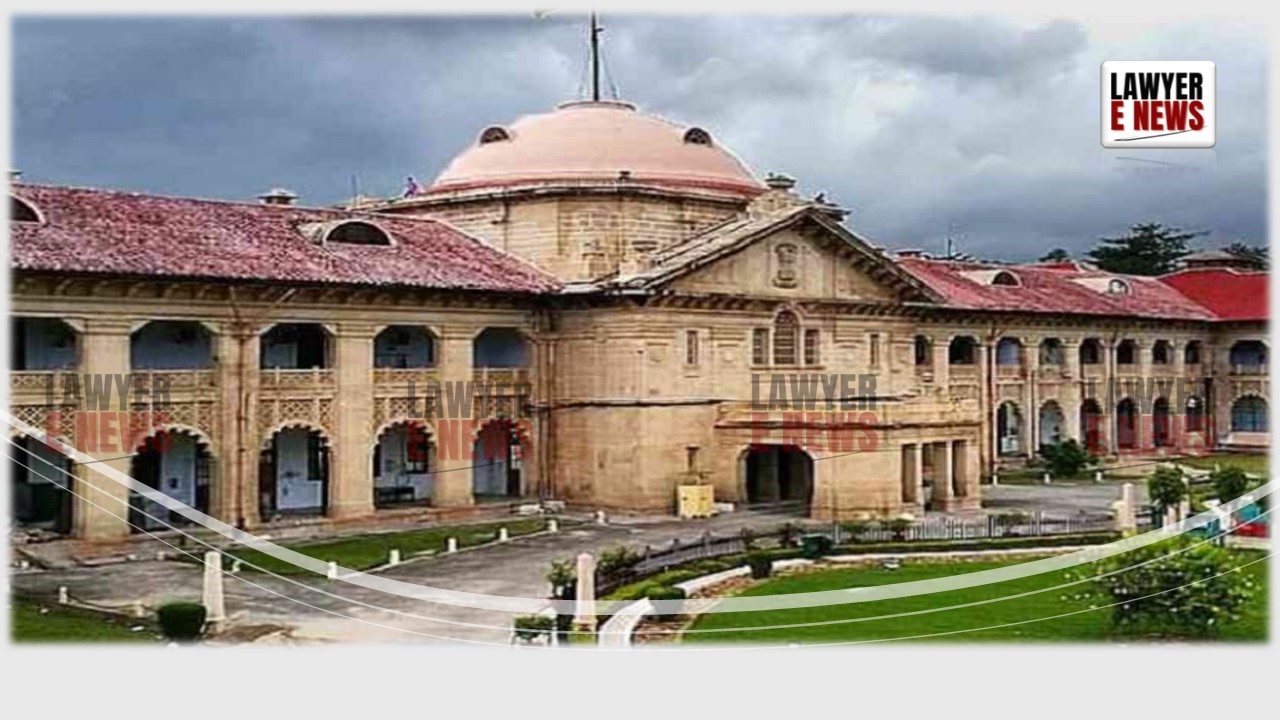-
by Admin
15 February 2026 5:35 AM



Allahabad High Court delivered a significant ruling in Ambika Yadav v. State of U.P. & Others (PIL No. 1050 of 2024), dismissing a series of Public Interest Litigations (PILs) challenging the construction of water tanks and RCC centers on land reserved for public utility purposes such as grazing fields (charagaah), threshing floors (khalihaan), and playgrounds. The Court upheld the construction as being in the public interest, and directed that training programs be initiated for Gaon Sabha Pradhans, with particular emphasis on women Pradhans, to educate them on their responsibilities.
The PILs were filed by villagers from various parts of Uttar Pradesh, objecting to the construction of water tanks and RCC centers on land that was reserved for public utility purposes, such as charagaah (grazing fields), khalihaan (threshing floors), and naveen parti (newly developed land). The petitioners argued that these constructions altered the designated purpose of the land without following due process and violated provisions under the U.P. Revenue Code, 2006, specifically Section 77, which restricts the conversion of such land.
The petitioners claimed that these lands should not be used for purposes other than those originally designated, asserting that the constructions were illegal and detrimental to the community’s interests.
Key Legal Issues and Observations by the Court
The Court examined whether the construction of water tanks and RCC centers on small portions of land designated for public purposes violated any legal provisions or significantly altered the primary purpose of the land.
1. Public Interest and Land Use
The Court confirmed that the construction of water tanks and RCC centers serves a public purpose and benefits the larger community. It was established that only small portions of the reserved land were being utilized, and the primary function of the land was not compromised.
"The construction is on a very small part of land which cannot change the nature of land, i.e., the purpose for which it is reserved, and the land can still be used for said purposes," the Court noted [Para 5].
2. No Violation of Section 77 of U.P. Revenue Code
The petitioners argued that Section 77 of the U.P. Revenue Code barred any change in the use of land reserved for public utilities like charagaah and khalihaan. However, the Court ruled that since no Bhumidhari rights (ownership rights) were being created, Section 77 was not violated. The land continued to vest in the State, and the Gaon Sabha had followed the due process in passing resolutions to use small parts of the land for public construction.
"The bar of Section 77 of U.P. Revenue Code would not come in the way except if it is shown that there is mala fide, which is not the case in these PILs," the Court held [Para 21].
3. Encroachments by Private Individuals and Pradhans
The Court also addressed complaints of land encroachment by private individuals and Pradhans. In one case, PIL No. 2250 of 2023, the petitioner alleged that the Pradhan had encroached on Gaon Sabha land. The Court directed that if the encroachment is not voluntarily removed within a month, proceedings under Section 67 of the U.P. Revenue Code should be initiated.
"If any person from the family of the Pradhan or the Pradhan himself has encroached on Gaon Sabha land, they shall vacate the land within one month, failing which legal proceedings must be initiated," the Court ordered [Para 30].
4. Pradhans’ Understanding of Their Duties
During the hearing, the Court expressed concern that many Pradhans, including women, lacked a clear understanding of their roles and responsibilities under the U.P. Panchayat Raj Act, 1947. The Court raised the issue of "Pradhanpati," where male spouses assume the responsibilities of elected women Pradhans. The Court directed the Panchayat Raj Department to initiate training programs to educate Pradhans about their duties and to discourage the practice of "Pradhanpati."
"The Court has interacted with Pradhans... but surprisingly, none of the Pradhans knew about their functions under Section 15 of the U.P. Panchayat Raj Act," the Court observed [Para 19].
The Court dismissed all the PILs, holding that the construction of water tanks and RCC centers was lawful and in the public interest. The Court emphasized that the constructions were on small portions of the land and did not violate any legal provisions. The land could still be used for its original purposes, such as grazing and threshing, and no Bhumidhari rights had been created.
In addition to dismissing the PILs, the Court issued several key directions:
Training for Pradhans: The Panchayat Raj Department was directed to initiate training programs within three months to educate Pradhans, particularly women, about their duties under the U.P. Panchayat Raj Act, 1947.
Shifting Construction: In PIL No. 1438 of 2024, the Court ordered that if construction on a water tank had not yet commenced, steps should be taken to shift the project to a corner of the designated land, provided other requirements were satisfied.
Encroachment Proceedings: In PIL No. 2250 of 2023, the Court ordered that any encroachments by Pradhans or their families must be vacated within one month, failing which legal action should be initiated under Section 67 of the U.P. Revenue Code.
Date of Decision: October 23, 2024
Ambika Yadav v. State of U.P. & Others
